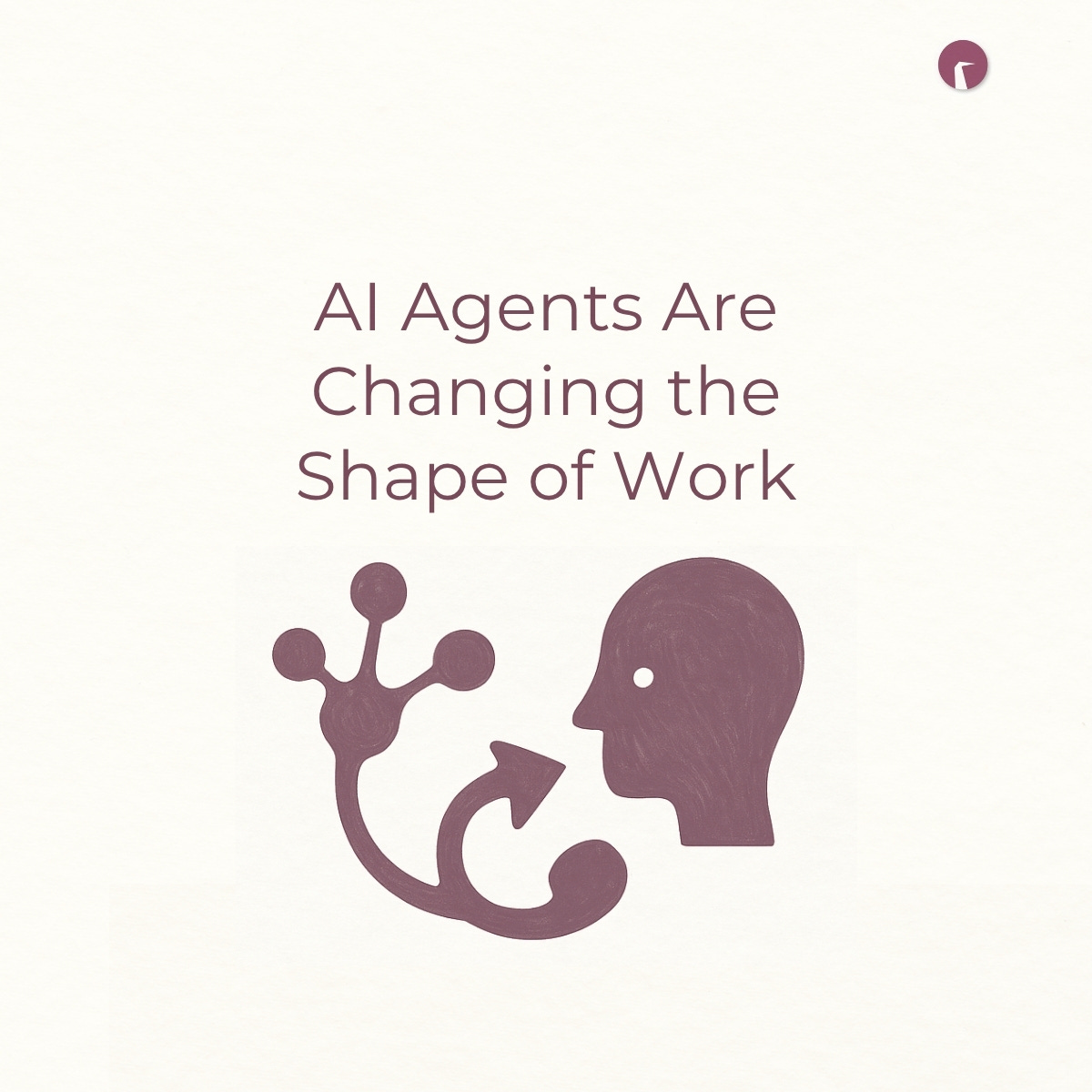Most companies still think AI is here to automate tasks.
But AI agents are already doing more.
They’re solving real problems.
Making business decisions.
Surfacing insights faster than teams can meet to discuss them.
This isn’t optimization.
It’s a change in how work happens.
And it reshapes what teams — and companies — need to look like.
AI agents are doing the work — not just supporting it
A 2024 Deloitte report found:
Not just assisting humans.
Not just answering prompts.
Executing.
The data is clear:
Teams using AI don’t just work faster — they outperform.
One person, partnered with the right AI system, can match the output of an entire team.
But that doesn’t mean teams are obsolete.
It means collaboration is being redefined.
Collaboration is no longer what it used to be
Traditional collaboration = meetings, threads, consensus, waiting.
But once AI enters the system,
the only work left for humans is the kind that demands intelligence:
Judgment
Interpretation
Creative strategy
Strategic risk
Here’s what that looks like in practice:
✔️ AI handles the volume.
Humans direct the value.
✔️ No more job box thinking.
People stretch across disciplines — because AI gives them leverage to do so.
✔️ Insight becomes instant.
But sense-making becomes collective.
AI can surface the signal — but people decide what it means, what’s true, and what to do next.
Collaboration now includes AI — and demands a higher quality of human connection around it.
Staying the same is the real risk
The corporate systems most companies operate in today weren’t built for this speed.
They were designed for structure, not flow.
For control, not velocity.
AI breaks that model open.
It moves through silos.
It collapses bottlenecks.
It makes traditional process look like lag.
Ask yourself:
✔️ Hiring:
Why are you still doing 5 rounds of manual screening
if AI can pre-qualify for adaptability, alignment, and ramp speed in minutes?
✔️ Marketing:
If AI can run 50 variations of copy in one click,
why are you still A/B testing in weeks?
✔️ Product:
If AI can simulate user feedback at scale,
why are you still waiting for roadmap validation?
Your org chart was built for a world that’s already behind.
Building an AI-native company starts now
Here’s what the shift looks like when done right:
✔️ AI has a role — not just a presence
It’s not “another tool.”
It’s a team member.
Assign ownership:
What does AI own?
What do humans challenge?
Where do they co-operate?
✔️ Decision-making becomes dynamic
AI doesn’t replace judgment — it sharpens it.
Design loops that look like this:
AI → Suggests
Human → Validates / Challenges
AI → Adapts
Human → Decides
This is where speed meets precision.
✔️ Leaders learn to lead with AI
You don’t need AI-literate operators.
You need AI-capable leadership.
Train leaders to ask better questions, not give longer approvals.
Train teams to challenge AI without defaulting to human instinct or machine bias.
✔️ Teams collaborate across real-time signals
Remove the layers.
Let AI surface what matters.
Let teams align without needing a meeting to see what’s already obvious.
✔️ Culture becomes adaptive — not reactive
Technology doesn’t transform companies.
People do.
The mindset shift is this:
AI isn’t here to replace us.
It’s here to demand better from us.
Faster decisions.
Better framing.
Deeper trust.
The future is AI + humans who know how to use it well
The most dangerous competitor isn’t AI.
It’s the company that learned how to work with it before you did.
This isn’t about catching up.
It’s about redesigning how your company works from the inside out.
Not “How do we use AI?”
But:
“How do we operate in a world where AI is a core team member?”
That’s the real question.
And it’s already in motion.
— Kris





AI Agents: what people are actually asking
✔ "One AI-powered person can’t do the work of a full team."
True — if you keep working the old way. AI isn’t a plug-in. It requires restructuring workflows so AI agents handle what machines do best, while humans focus on high-value decisions.
✔ "AI won’t just fit into old processes. You need to rebuild workflows."
100% true. Companies that just add AI to old workflows see little impact. The real transformation happens when operations are redesigned for AI agents.
✔ "If AI makes collaboration more efficient, won’t there be fewer jobs?"
This argument has been made before:
- Internet → "Retail will die" (it didn’t).
- CRM software → "Sales teams won’t be needed" (they still are).
- Cloud computing → "IT teams will disappear" (they evolved).
✔ "The future of AI isn’t chat interfaces — it’s autonomous agents."
Exactly. The real shift? AI agents running in the background, calling humans only when needed.
✔ "Buzzwords aren’t helping. What’s actually working?"
Fair point. AI is only valuable where it creates leverage — not just automating, but augmenting human decisions.